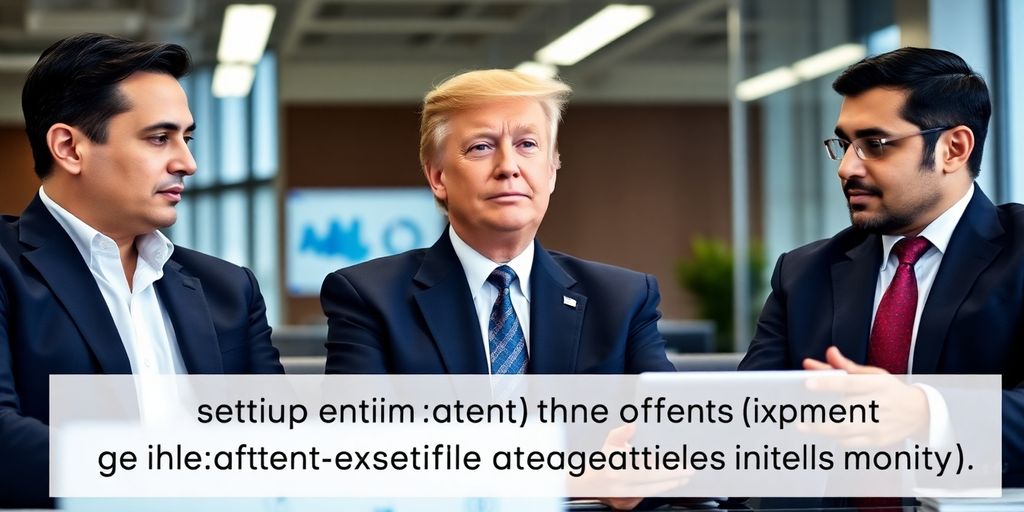Business
Trump Appoints Musk and Ramaswamy to Lead Government Efficiency Initiative

U.S. President-elect Donald Trump has announced the formation of a new Department of Government Efficiency, appointing billionaire entrepreneur Elon Musk and former presidential candidate Vivek Ramaswamy as co-leaders. This initiative aims to streamline government operations, reduce bureaucracy, and cut unnecessary expenditures, with a target completion date set for July 4, 2026.
Key Takeaways
- New Department: The Department of Government Efficiency (DOGE) will focus on dismantling bureaucratic structures and reducing regulations.
- Leadership: Elon Musk and Vivek Ramaswamy will co-lead the initiative, operating outside traditional government frameworks.
- Goals: The initiative aims to cut wasteful spending and restructure federal agencies for improved efficiency.
- Transparency: Musk promises maximum transparency, with all actions posted online for public scrutiny.
Overview of the Initiative
The newly established Department of Government Efficiency is designed to tackle long-standing issues within the federal bureaucracy. Trump emphasized that the department will provide guidance from outside the government, allowing Musk and Ramaswamy to implement reforms without the need for Senate confirmation. This approach is expected to facilitate a more entrepreneurial mindset within government operations.
Musk, known for his leadership roles at Tesla and SpaceX, has been a significant supporter of Trump, contributing millions to his campaign. His involvement in this initiative is seen as a strategic move that could benefit his business interests, particularly in sectors like artificial intelligence and cryptocurrency.
Goals and Objectives
The primary objectives of the Department of Government Efficiency include:
- Dismantling Bureaucracy: Streamlining processes to eliminate unnecessary layers of administration.
- Cutting Regulations: Reducing the regulatory burden on businesses and individuals.
- Restructuring Agencies: Reorganizing federal agencies to enhance their effectiveness and accountability.
- Public Engagement: Encouraging public participation by inviting citizens to report wasteful spending through a proposed leaderboard.
Implementation Strategy
The initiative will be guided by a series of executive orders aimed at transforming the federal workforce:
- Hiring Freeze: A plan to limit hiring to one new employee for every four that leave, focusing on efficiency improvements.
- Reductions in Force: Agencies will prepare for potential layoffs in non-essential areas, prioritizing functions mandated by law.
- Rulemaking: New suitability criteria for federal employees will be established to ensure compliance with legal obligations.
Public Reaction
The announcement has sparked mixed reactions. Supporters argue that the initiative could lead to significant savings and a more efficient government. Critics, including advocacy groups, have raised concerns about Musk’s qualifications for such a role, citing potential conflicts of interest given his business background.
Public Citizen, a consumer rights organization, criticized the appointment, stating that Musk lacks the necessary experience in government efficiency and regulation. They argue that this move exemplifies corporate influence over government policy.
Conclusion
As the Trump administration prepares to take office, the establishment of the Department of Government Efficiency marks a bold step towards reshaping the federal landscape. With Musk and Ramaswamy at the helm, the initiative promises to challenge traditional government operations and could redefine the relationship between the private sector and public policy. The success of this ambitious plan will depend on its execution and the ability to engage the public in the process.
Sources
-

 Press Release6 days ago
Press Release6 days agoNura Labs Files Revolutionary Patent: AI-Powered Wallet Solves the $180 Billion Crypto Staking Complexity Crisis
-

 Press Release4 days ago
Press Release4 days agoGlobal Compound Feeds and Additives Industry Report: Market Expansion and Competitive Insights to 2035
-

 Technology4 days ago
Technology4 days agoWhat to Know Before Switching Cell Phone Network Services in 2025
-

 Press Release2 days ago
Press Release2 days agoCrypto WINNAZ Launches First On-Chain Yield Engine for Meme Coins, Enabling 20x–300x Returns














